The 9th China Geriatric Medicine and Scientific and Technological Innovation Conference — — Application of New Technologies for Cognitive Disorders and the 8th Fujian Geriatric Neurology Symposium
Sailing in the wind and waves, summer water is slightly cool. On July 6-9, 2023, the 9th Chinese Geriatric Medicine and Technology Innovation Conference of the Chinese Geriatric Society was held in Fuzhou, Fujian Province. On July 9, the theme forum of ";The 9th China Geriatric Medicine and Technology Innovation Conference - Application of New Technologies of Cognitive Impairment and the 8th Seminar on Geriatric Neurology in Fujian Province";, organized by the Cognitive Disorders Branch of the Chinese Geriatric Society, was successfully held, and vivid disciplinary exchanges and ideas were conducted with experts in the industry in the form of offline meetings for the first time after the end of the epidemic. More than 150 experts from neurology, psychiatry, geriatrics, nuclear medicine, nursing and elderly care fields from all over the country gathered together, and 9,203 people participated in the online ACDC Cognitive micro-Academy.
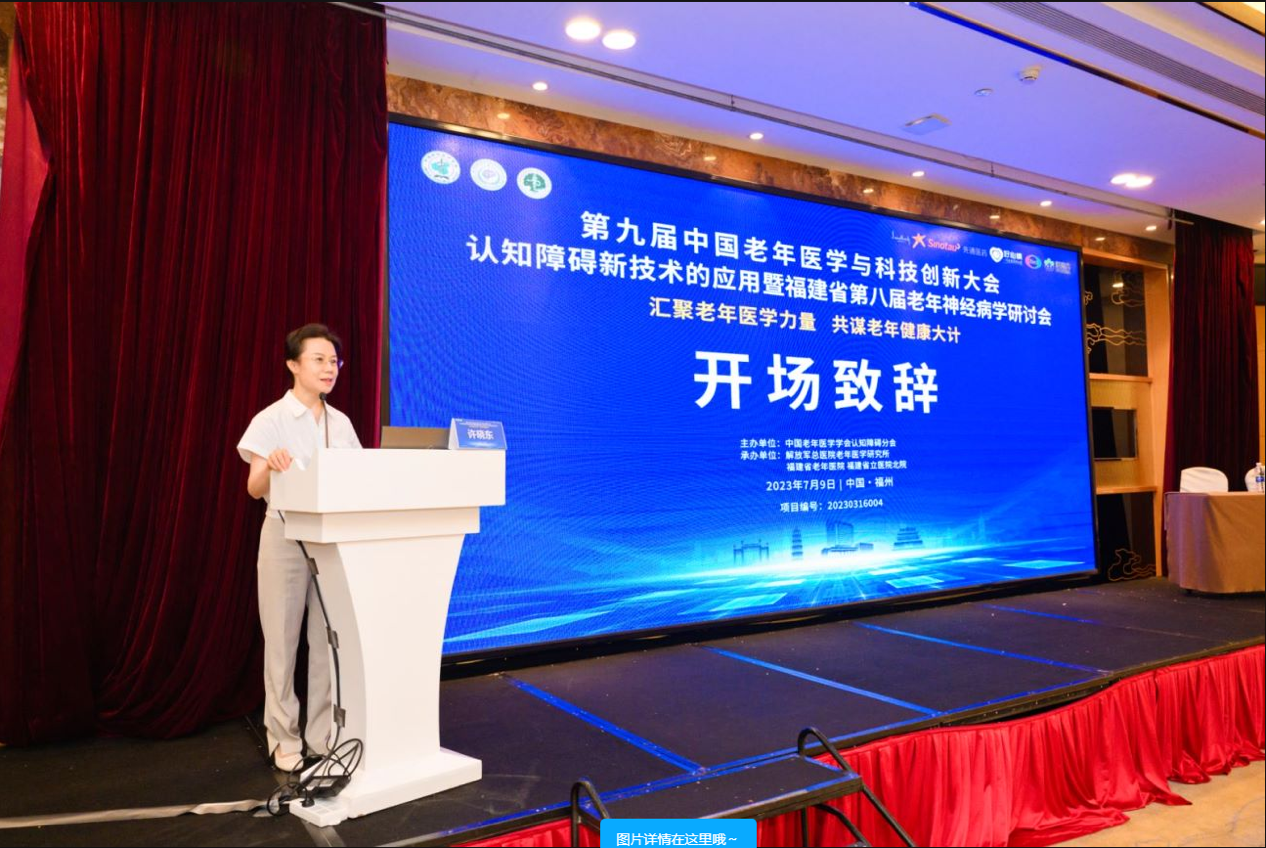 Xu Xiaodong, Vice President and Secretary General of the Chinese Geriatric Society, attended the opening ceremony and delivered a speech on behalf of President Fan Li. He warmly welcomed all the delegates and members, affirmed the great work and achievements of the Chinese Geriatric Society since its establishment 9 years ago, and wished the meeting a complete success.
Xu Xiaodong, Vice President and Secretary General of the Chinese Geriatric Society, attended the opening ceremony and delivered a speech on behalf of President Fan Li. He warmly welcomed all the delegates and members, affirmed the great work and achievements of the Chinese Geriatric Society since its establishment 9 years ago, and wished the meeting a complete success.
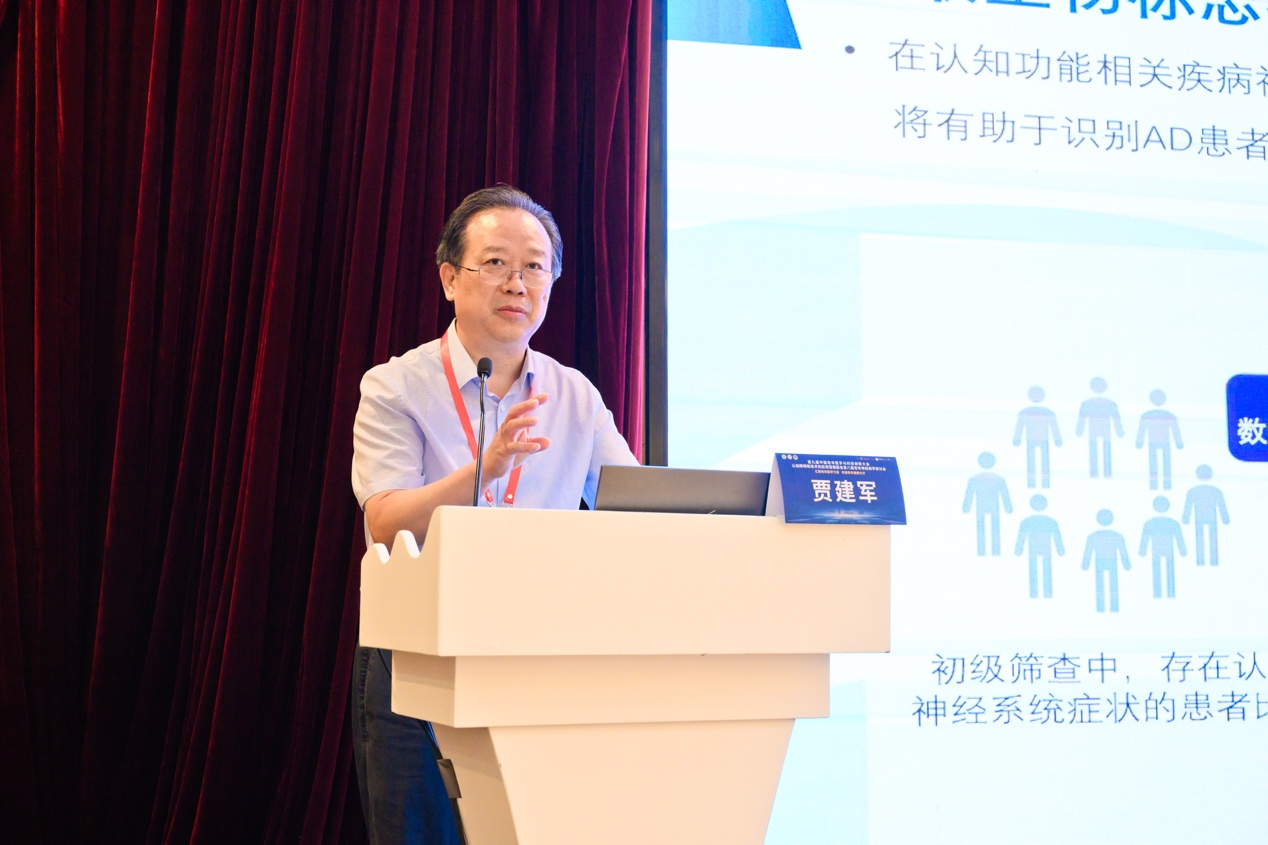 Next, President Jia Jianjun delivered a speech, thanking the association for its guidance and great help. He acknowledged
Next, President Jia Jianjun delivered a speech, thanking the association for its guidance and great help. He acknowledged
The Branch is committed to building a good platform for interdisciplinary communication, and puts forward prospects for the development and construction of the discipline of cognitive impairment, and is confident in promoting the new development of the field of cognitive impairment in China.
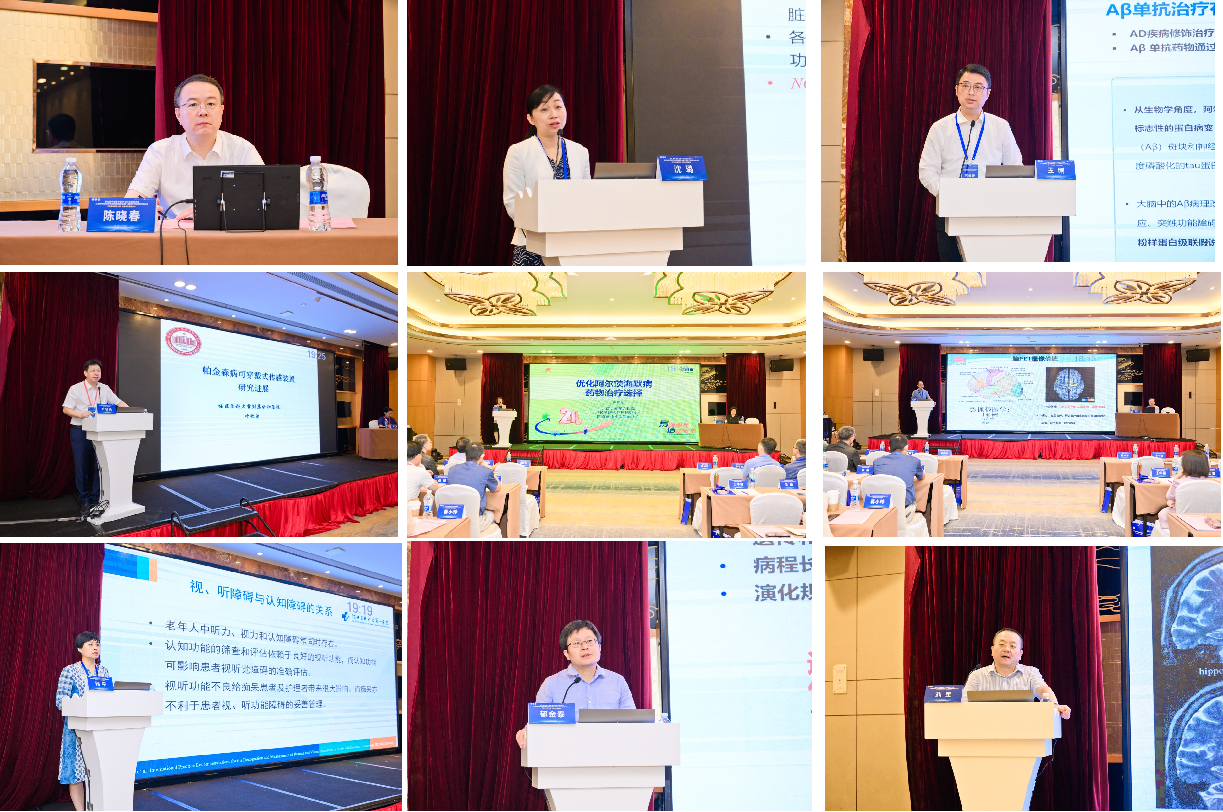 In a warm atmosphere, the keynote forum of Cognitive Disability Branch officially began. President Jia Jianjun served as the chairman. Secretary Chen Xiaochun introduced President Jia Jianjun. Next, President Jia introduced the latest pathogenesis, diagnosis and treatment of AD in the theme sharing of "New Progress in AD Research";, and put forward ideas on the progress of AD treatment. Secretary Chen Xiaochun also talked about the role of moderate activation of microglia in the pathogenesis of AD. Professor Shen Lu from Xiangya Hospital of Central South University shared the Research and Application of Genes in the Diagnosis of Cognitive Disorders, made a professional interpretation of the diversity of gene mutations and the particularity of gene detection methods, explained the diseases of cognitive disorders from the genetic level, and introduced the remarkable achievements made by his team in this respect. Professor Wang Gang of Ruijin Hospital Affiliated to Shanghai Jiao Tong University expounded the Clinical Practice and thinking of Aβ-monoclonal antibody Treatment, expressing the incightful thinking of the related research of Aβ-monoclonal antibody from the biological perspective, clinical application and other aspects.
In a warm atmosphere, the keynote forum of Cognitive Disability Branch officially began. President Jia Jianjun served as the chairman. Secretary Chen Xiaochun introduced President Jia Jianjun. Next, President Jia introduced the latest pathogenesis, diagnosis and treatment of AD in the theme sharing of "New Progress in AD Research";, and put forward ideas on the progress of AD treatment. Secretary Chen Xiaochun also talked about the role of moderate activation of microglia in the pathogenesis of AD. Professor Shen Lu from Xiangya Hospital of Central South University shared the Research and Application of Genes in the Diagnosis of Cognitive Disorders, made a professional interpretation of the diversity of gene mutations and the particularity of gene detection methods, explained the diseases of cognitive disorders from the genetic level, and introduced the remarkable achievements made by his team in this respect. Professor Wang Gang of Ruijin Hospital Affiliated to Shanghai Jiao Tong University expounded the Clinical Practice and thinking of Aβ-monoclonal antibody Treatment, expressing the incightful thinking of the related research of Aβ-monoclonal antibody from the biological perspective, clinical application and other aspects.
The theme of Professor Ye Qinyong's speech from the Union Hospital Affiliated to Fujian Medical University was "Research Progress of wearable devices for Parkinson's Disease". Based on wearable devices, he gave a vivid explanation of the early diagnosis of movement disorders, personalized treatment, and the application of chronic disease management, providing novel ideas for the development of new technologies and new businesses in various hospitals and platforms. Professor Wang Huali of Peking University Sixth Hospital gave a keynote speech on "Optimizing drug treatment options for Alzheimer's Disease"; and vividly explained the current status of PD treatment. Professor Zhang Jinming of the First Medical Center of the PLA General Hospital gave a lecture on PET Imaging of Central Neurodegenerative Diseases. Professor Cheung Kam-ming said, 1 Qualitative and quantitative analysis of 8F-florbetaben PET imaging can be used to distinguish non-cognitive impairment from mild to moderate AD subjects. It has the characteristics of low radiation dose and good safety, which illustrates the application value of PET imaging in the diagnosis of AD. Professor Gu Ping of the First Hospital of Hebei Medical University interpreted the audio-visual management Strategy for dementia patients. The relationship between visual impairment and cognitive impairment, and how to manage the life, diagnosis and treatment of dementia patients with visual impairment are discussed.
Professor Yu Jintai of Huashan Hospital Affiliated to Fudan University participated in a number of multi-center clinical trials, and shared with us the theme of "Alzheimer's disease cohort construction and precision Medicine" with his and his team's experience. Professor Liu Jun of the Second Affiliated Hospital of Guangzhou Medical University systematically introduced the discussion of brain MRI structural image as a diagnostic marker of AD, and his team has also done a lot of research work in this regard.
 Each topic is solid, and Prof. Chen Qingling, Prof. Wang Yongjun, Prof. Wei Wenshi, Prof. Zhang Yi, Prof. Zhang Junjian, Prof. Cao Yunpeng, Prof. Zhou Yuying conducted wonderful chairmanship, and made a new interpretation of cognitive impairment from multiple aspects such as discipline construction, disease management strategy, new technology and new business, and clinical speculation.
Each topic is solid, and Prof. Chen Qingling, Prof. Wang Yongjun, Prof. Wei Wenshi, Prof. Zhang Yi, Prof. Zhang Junjian, Prof. Cao Yunpeng, Prof. Zhou Yuying conducted wonderful chairmanship, and made a new interpretation of cognitive impairment from multiple aspects such as discipline construction, disease management strategy, new technology and new business, and clinical speculation.
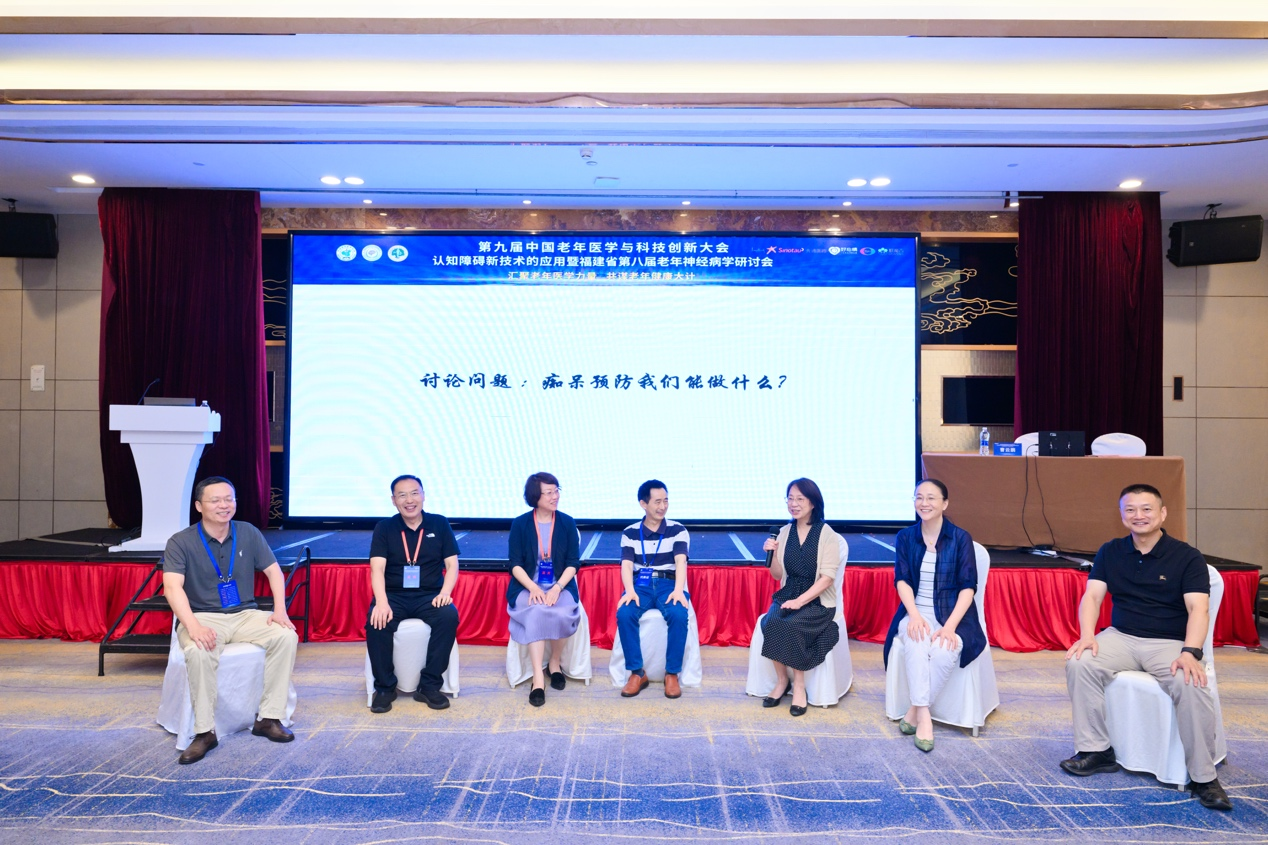
Finally, Professor Xu Jun of Beijing Tiantan Hospital affiliated to Capital Medical University presided over the discussion session. Professors Tan Xiaolin, Dong Chunbo, Luo Hongbo, Zhang Jintao, Lin Xiaojuan and Jiang Xiaoling had a profound exchange on the frontier progress and clinical practice of cognitive impairment, and burst out a brilliant ideological spark.
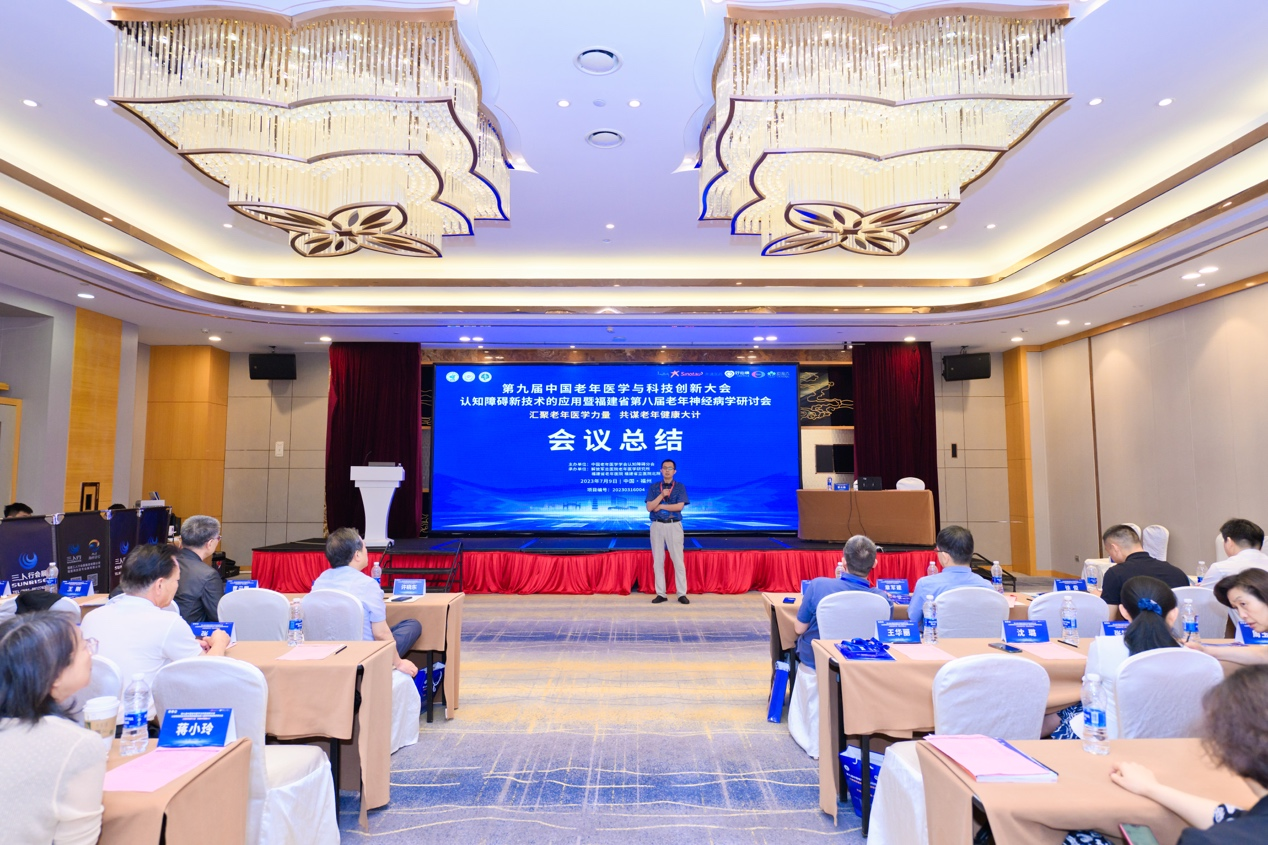 This conference gathered the elite forces in the field of cognitive impairment in China, updated the relevant medical concepts and models, and promoted the understanding of grassroots medical workers on cognitive impairment, promoted the sustainable and healthy development of cognitive impairment prevention and treatment, and contributed to a healthy China.
This conference gathered the elite forces in the field of cognitive impairment in China, updated the relevant medical concepts and models, and promoted the understanding of grassroots medical workers on cognitive impairment, promoted the sustainable and healthy development of cognitive impairment prevention and treatment, and contributed to a healthy China.

